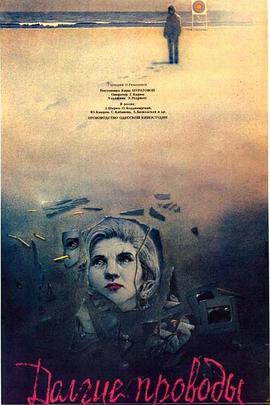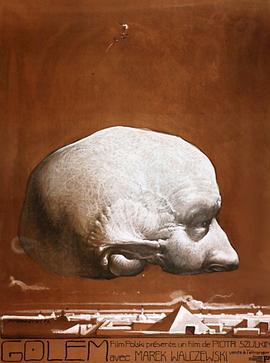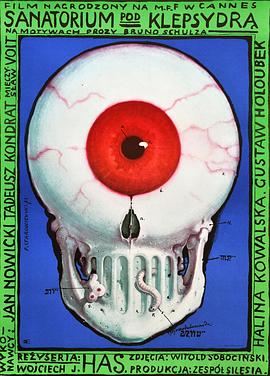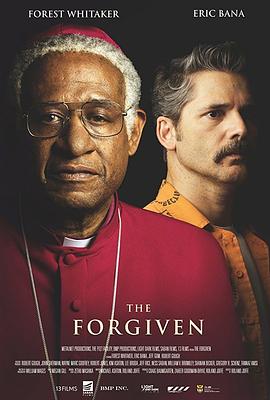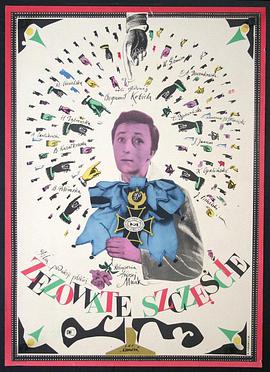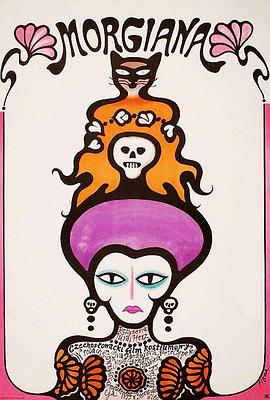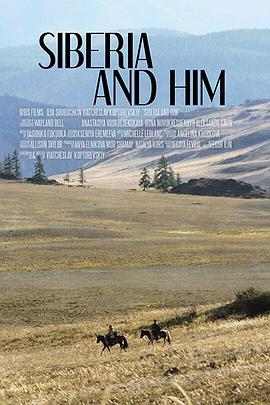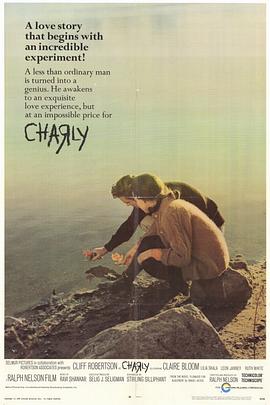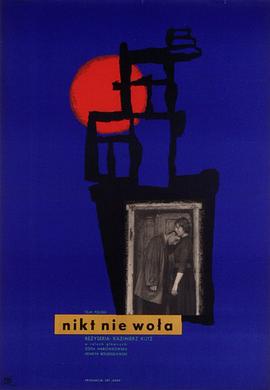-
备注:已完结
类型:剧情片
主演:季纳伊达·沙尔科 Oleg Vladimirsky Tatyana M
导演:琪拉·穆拉托娃
语言:其它
年代:未知
简介:It is a great film by a great director.Kira Muratova has never been given her due in the Soviet and post-Soviet Russia.In the Long Good Bye she depicts a seemingly banal story of a jealous and possessive mother (brilliantly acted by Zinaida Sharko) and her poor aloof and lonely son (the only cinematic role by the talented O. Vladimirsky). The story - which is nothing extraordinary in itself - grows into the wonderful and frightening analysis of alienation between genders and generations on the background of the even more frighteningly bleak and dehumanized Soviet reality.Kira Muratova shows the tiny details of everyday Soviet life,and, again , banal as they are ,they are a hair-raising horror.The dialogue is deliberately laconic and void of any sense, showing the ever-growing people's inability to communicate and understand each other.The sound track ( by another under-estimated talent, Oleg Karavaichuk)adds to the atmosphere of hopeless and meaningless existence.Of course,Sasha (the name of the protagonist),will leave his despotic ( but loving!) mother sooner or later, but where for (c)
-
备注:已完结
类型:科幻片
主演:马雷克·瓦尔切夫斯基 克里斯提娜·杨达 Joanna Zólkowsk
导演:皮奥特尔·舒尔金
语言:其它
年代:未知
简介:In this futuristic sci-fi film, based on the legends of the Golem, insane scientists have invented technology that give them total control over the half-human, half-android population of Earth. Trouble ensues when one of the creatures begins showing independent will. He must be destroyed lest he influence the rest. They pursue him, but somehow he continues to elude the evil doctors. ~ Sandra Brennan, All Movie Guide
-
备注:已完结
类型:喜剧片
主演:博古米尔·科别拉 Krystyna Karkowska 芭芭拉·拉斯
导演:安杰伊·蒙克
语言:其它
年代:未知
简介: 让•皮斯吉克(Bogumil Kobiela博古米尔•科别拉 饰)是一个一生走背运的小人物,在家中经常被裁缝老爹修理,在学校里又被同学欺负。长大后英俊帅气,却因为大鼻子而被当作犹太人区别对待。做家庭教师时拥有了初恋,结果稀里糊涂卷入一场游行,被军警胖走一顿,随后丢掉了工作和爱情。他又立志参军,千辛万苦赶到报到地点却发现这里已是一座空城,结果又因好奇穿上波兰军官制服而被纳粹投入集中营。在监狱中他假戏真做,扮作高级军官,谎言揭穿后,他又被同伴当作间谍对待。战争终于结束,皮斯吉克重获自由,在新的社会体制下他将如何生存?
-
备注:已完结
类型:战争片
主演:Andrzej Banaszewski Beata Barszczew
导演:斯坦尼斯拉夫·罗泽维格
语言:其它
年代:未知
简介: In 1961, Stanislaw Rozewicz created the novella film "Birth Certificate" in cooperation with his brother, Taduesz Rozewicz as screenwriter. Such brother tandems are rare in the history of film but aside from family ties, Stanislaw (born in 1924) and Taduesz (born in 1921) were mutually bound by their love for the cinema. They were born and grew up in Radomsk, a small town which had "its madmen and its saints" and most importanly, the "Kinema" cinema, as Stanislaw recalls: for him cinema is "heaven, the whole world, enchantment". Tadeusz says he considers cinema both a charming market stall and a mysterious temple. "All this savage land has always attracted and fascinated me," he says. "I am devoured by cinema and I devour cinema; I'm a cinema eater." But Taduesz Rozewicz, an eminent writer, admits this unique form of cooperation was a problem to him: "It is the presence of the other person not only in the process of writing, but at its very core, which is inserperable for me from absolute solitude." Some scenes the brothers wrote together; others were created by the writer himself, following discussions with the director. But from the perspective of time, it is "Birth Certificate", rather than "Echo" or "The Wicked Gate", that Taduesz describes as his most intimate film. This is understandable. The tradgey from September 1939 in Poland was for the Rozewicz brothers their personal "birth certificate". When working on the film, the director said "This time it is all about shaking off, getting rid of the psychological burden which the war was for all of us. ... Cooperation with my brother was in this case easier, as we share many war memories. We wanted to show to adult viewers a picture of war as seen by a child. ... In reality, it is the adults who created the real world of massacres. Children beheld the horrors coming back to life, exhumed from underneath the ground, overwhelming the earth." The principle of composition of "Birth Certificate" is not obvious. When watching a novella film, we tend to think in terms of traditional theatre. We expect that a miniature story will finish with a sharp point; the three film novellas in Rozewicz's work lack this feature. We do not know what will be happen to the boy making his alone through the forest towards the end of "On the Road". We do not know whether in "Letter from the Camp", the help offered by the small heroes to a Soviet prisoner will rescue him from the unknown fate of his compatriots. The fate of the Jewish girl from "Drop of Blood" is also unclear. Will she keep her new impersonation as "Marysia Malinowska"? Or will the Nazis make her into a representative of the "Nordic race"? Those questions were asked by the director for a reason. He preceived war as chaos and perdition, and not as linear history that could be reflected in a plot. Although "Birth Certificate" is saturated with moral content, it does not aim to be a morality play. But with the immense pressure of reality, no varient of fate should be excluded. This approached can be compared wth Krzysztof Kieslowski's "Blind Chance" 25 years later, which pictured dramatic choices of a different era. The film novella "On the Road" has a very sparing plot, but it drew special attention of the reviewers. The ominating overtone of the war films created by the Polish Film School at that time should be kept in mind. Mainly owing to Wajda, those films dealt with romantic heritage. They were permeated with pathos, bitterness, and irony. Rozewicz is an extraordinary artist. When narrating a story about a boy lost in a war zone, carrying some documents from the regiment office as if they were a treasure, the narrator in "On the Road" discovers rough prose where one should find poetry. And suddenly, the irrational touches this rather tame world. The boy, who until that moment resembled a Polish version of the Good Soldier Schweik, sets off, like Don Quixote, for his first and last battle. A critic described it as "an absurd gesture and someone else could surely use it to criticise the Polish style of dying. ... But the Rozewicz brothers do no accuse: they only compose an elegy for the picturesque peasant-soldier, probably the most important veteran of the Polish war of 1939-1945." "Birth Certificate" is not a lofty statement about national imponderabilia. The film reveals a plebeian perspective which Aleksander Jackieqicz once contrasted with those "lyrical lamentations" inherent in the Kordian tradition. However, a historical overview of Rozewicz's work shows that the distinctive style does not signify a fundamental difference in illustrating the Polish September. Just as the memorable scene from Wajda's "Lotna" was in fact an expression of desperation and distress, the same emotions permeate the final scene of "Birth Certificate". These are not ideological concepts, though once described as such and fervently debated, but rather psychological creations. In this specific case, observes Witold Zalewski, it is not about manifesting knightly pride, but about a gesture of a simple man who does not agree to be enslaved. The novella "Drop of Blood" is, with Aleksander Ford's "Border Street", one of the first narrations of the fate of the Polish Jews during the Nazi occupation. The story about a girl literally looking for her place on earth has a dramatic dimension. Especially in the age of today's journalistic disputes, often manipulative, lacking in empathy and imbued with bad will, Rozewicz's story from the past shocks with its authenticity. The small herione of the story is the only one who survives a German raid on her family home. Physical survial does not, however, mean a return to normality. Her frightened departure from the rubbish dump that was her hideout lead her to a ruined apartment. Her walk around it is painful because still fresh signs of life are mixed with evidence of annihilation. Help is needed, but Mirka does not know anyone in the outside world. Her subsequent attempts express the state of the fugitive's spirits - from hope and faith, moving to doubt, a sense of oppression, and thickening fear, and finally to despair. At the same time, the Jewish girl's search for refuge resembles the state of Polish society. The appearance of Mirka results in confusion, and later, trouble. This was already signalled by Rozewicz in an exceptional scene from "Letter from the Camp" in which the boy's neighbour, seeing a fugitive Russian soldier, retreats immediately, admitting that "Now, people worry only about themselves." Such embarassing excuses mask fear. During the occupation, no one feels safe. Neither social status not the aegis of a charity organisation protects against repression. We see the potential guardians of Mirka passing her back and forth among themselves. These are friendly hands but they cannot offer strong support. The story takes place on that thin line between solidarity and heroism. Solidarity arises spontaneously, but only some are capable of heroism. Help for the girl does not always result from compassion; sometimes it is based on past relations and personal ties (a neighbour of the doctor takes in the fugitive for a few days because of past friendship). Rozewicz portrays all of this in a subtle way; even the smallest gesture has significance. Take, for example, the conversation with a stranger on the train: short, as if jotted down on the margin, but so full of tension. And earlier, a peculiar examination of Polishness: the "Holy Father" prayer forced on Mirka by the village boys to check that she is not a Jew. Would not rising to the challenge mean a death sentance? Viewed after many years, "Birth Certificate" discloses yet another quality that is not present in the works of the Polish School, but is prominent in later B-class war films. This is the picture of everyday life during the war and occupation outlined in the three novellas. It harmonises with the logic of speaking about "life after life". Small heroes of Rozewicz suddenly enter the reality of war, with no experience or scale with which to compare it. For them, the present is a natural extension of and at the same time a complete negation of the past. Consider the sleey small-town marketplace, through which armoured columns will shortly pass. Or meet the German motorcyclists, who look like aliens from outer space - a picture taken from an autopsy because this is how Stanislaw and Taduesz perceived the first Germans they ever met. Note the blurred silhouettes of people against a white wall who are being shot - at first they are shocking, but soon they will probably become a part of the grim landscape. In the city centre stands a prisoner camp on a sodden bog ("People perish likes flies; the bodies are transported during the night"); in the street the childern are running after a coal wagon to collect some precious pieces of fuel. There's a bustle around some food (a boy reproaches his younger brother's actions by singing: "The warrant officer's son is begging in front of the church? I'm going to tell mother!"); and the kitchen, which one evening becomes the proscenium of a real drama. And there are the symbols: a bar of chocolate forced upon a boy by a Wehrmacht soldier ("On the Road"); a pair of shoes belonging to Zbyszek's father which the boy spontaneously gives to a Russian fugitive; a priceless slice of bread, ground under the heel of a policeman in the guter ("Letters from the Camp"). As the director put it: "In every film, I communicate my own vision of the world and of the people. Only then the style follows, the defined way of experiencing things." In Birth Certificate, he adds, his approach was driven by the subject: "I attempted to create not only the texture of the document but also to add some poetic element. I know it is risky but as for the merger of documentation and poety, often hidden very deep, if only it manages to make its way onto the screen, it results in what can referred to as 'art'." After 1945, there were numerous films created in Europe that dealt with war and children, including "Somewhere in Europe" ("Valahol Europaban", 1947 by Geza Radvanyi), "Shoeshine" ("Sciescia", 1946 by Vittorio de Sica), and "Childhood of Ivan" ("Iwanowo dietstwo" by Andriej Tarkowski). Yet there were fewer than one would expect. Pursuing a subject so imbued with sentimentalism requires stylistic disipline and a special ability to manage child actors. The author of "Birth Certificate" mastered both - and it was not by chance. Stanislaw Rozewicz was always the beneficent spirit of the film milieu; he could unite people around a common goal. He emanated peace and sensitivity, which flowed to his co-workers and pupils. A film, being a group work, necessitates some form of empathy - tuning in with others. In a biographical documentary about Stanislaw Rozewicz entitled "Walking, Meeting" (1999 by Antoni Krauze), there is a beautiful scene when the director, after a few decades, meets Beata Barszczewska, who plays Mireczka in the novella "Drops of Blood". The woman falls into the arms of the elderly man. They are both moved. He wonders how many years have passed. She answers: "A few years. Not too many." And Rozewicz, with his characteristic smile says: "It is true. We spent this entire time together."
-
-
备注:已完结
类型:科幻片
主演:克里夫·罗伯逊 克莱尔·布鲁姆 Lilia Skala
导演:拉尔夫·尼尔森
语言:英语
年代:未知
简介:查利(克里夫·罗伯逊 Cliff Robertson 饰)虽然已经是一名30岁的成年男子了,但是因为患有智力障碍,他的言行举止都宛若一个6岁的孩童。白天,查利在面包房靠着做清洁工来赚取微薄的薪水养活自己,这份工作除了非常辛苦以外,查理还必须忍受同伴们的嘲笑和欺侮。晚上,查利回去夜校上课,他的老师爱丽丝(克莱尔·布鲁姆 Claire Bloom 饰)对查利非常的好。 为了帮查利治病,爱丽丝找到了专门进行大脑实验的神经学家理查德(Leon Janney 饰)和安娜(莉莉娅·斯卡拉 Lilia Skala 饰),查利作为实验对象接受了两人的治疗,谁知道治疗效果拔群,查利不仅完全病愈,而且获得了超高的智商。
-
备注:已完结
类型:爱情片
主演:Zofia Marcinkowska Henryk Boukolows
语言:其它
年代:未知
简介: 50年代-60年代初波兰电影学院派的经典作品之一,堪称与同时代意大利导演安东尼奥尼的《奇遇》相比,改编自Józef Hen在社会主义波兰时期被禁的小说。 In 1960 his second film NIKT NIE WOLA / NOBODY'S CALLING, based on a Jozef Hen novel that was never published in Poland, described the fate of Poles on the Eastern Front. Kutz used the film to explore new formal solutions, collaborating closely with cinematographer Jerzy Wojcik to reveal the psychological landscape of a pair of lovers who are strongly affected by wartime events. The camera recorded the couple's inner experiences, contrasting their muted intimacy against the surrounding scenery of a ruined town. The film did not win over critics at the time of its release. It was not until later that critics recognized Kutz's effort to experiment with aesthetics in a manner akin to that pursued by filmmakers of the new wave. NOBODY'S CALLING came to be compared with Michelangelo Antonioni's THE ADVENTURE, which was produced around the same time.
